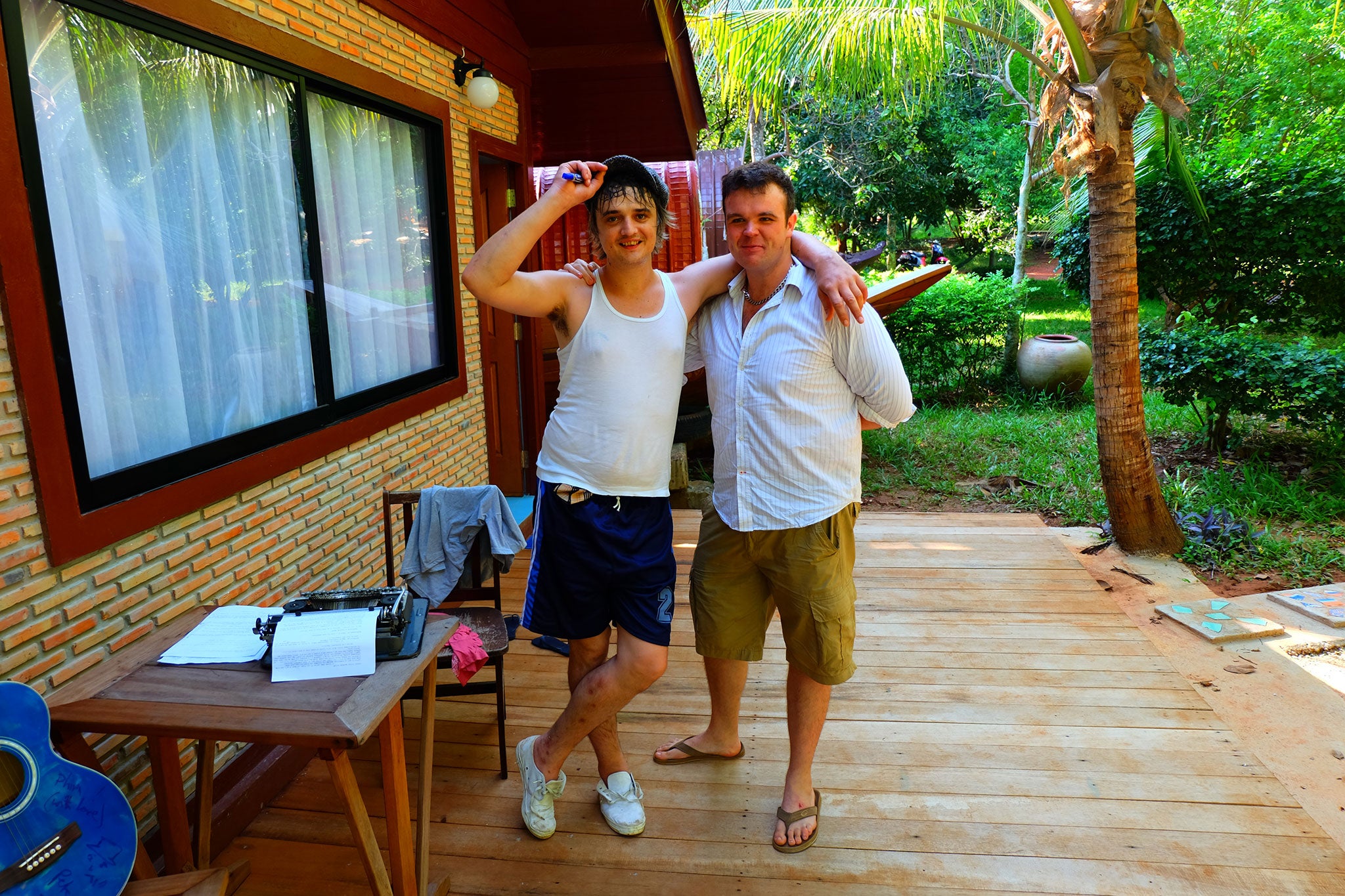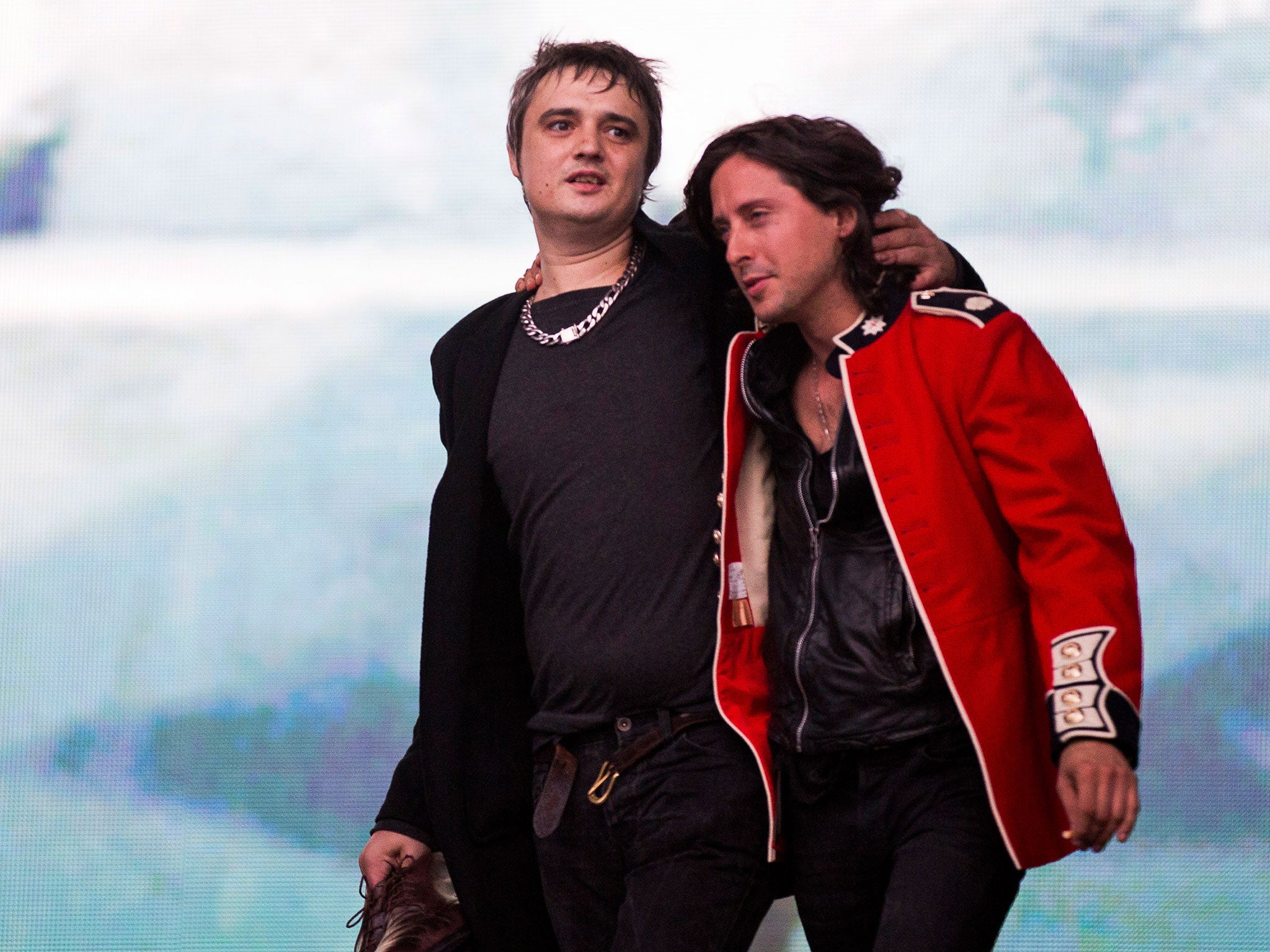Pete Doherty: To anyone struggling with addiction, just hang on – for more than ten years I've been powerless, but there's a way out
This is the first time I've chosen rehab for myself, and got clean. Now I want to help others do the same

I was 16 when someone offered me a spliff and said, “You'll love it, it’ll make you laugh”. That was cannabis, and it just made me feel a bit sick really. At 17 or 18 I moved down to London. I was like a greyhound out of the traps, with this wonderful mysterious world of drugs.
I was into psychedelic music from the Sixties, and I’d go to these underground clubs. There were loads of drugs around: weed, speed, LSD, but in the back of my mind there was always heroin. Long before I came across it, heroin was there. Except in these early years it wasn't called heroin; I called it opium.
To me it wasn’t a dirty street drug, it was this magic potion I read about. It was Kubla Khan, Thomas DeQuincy, Oscar Wilde: it was an aspect of their world that appealed to me — the opiated dream-world. Eventually I came across someone who could get some. I remember it was quite a big moment for me, taking it for the first time. I was 22 or 23. I put it in a spliff and smoked it and went to bed expecting to have all these amazing dreams.
Now, more than 10 years on, I can see that drugs have flummoxed me. In most aspects of my life I think I'm a pretty sane person. If I hadn't been successful with my music, I think I would have pushed myself to be successful at something else because I'm like that — I'm a grafter. But I got addicted. I wanted to stop, but I couldn't.
I’m currently receiving treatment at the Hope Rehab Centre in Thailand. The program here is very closely connected to the 12 Steps model, which as far as I can tell is the only thing that works, other than a lobotomy. It is a very peaceful place, and full of people I can trust.
It all started because I wanted help, so I did a bit of research. I'd been in another rehab where Simon Mott was the head counsellor before he started his own treatment centre, so I knew of him but he'd never been my counsellor.
I spoke to a lot of people who'd been in treatment and had got clean and a lot of them said Simon's the man, so that was it really. And the offer he made to me, he said if I wanted to come there was a space. And that was so important. I needed treatment because I was running out holes to hide in, I was running out of time and chances, and for him to say “come when you're ready”, that was magic.
I was so grateful there wasn't a bureaucratic nightmare; it was like “get on the plane and come”. But even then I thought I'd have a couple of days off in Bangkok first. But when I got to Bangkok airport, Simon was there waiting for me. He took my bag and put it in the car. I told him I was thinking about a couple of days off before I started treatment, and he just smiled and said “yeah let's talk about that back at Hope”, and that was it.
Being here has made me realise how much I want to help other people struggling with addiction. So many people could benefit so much from treatment here. This is a wonderful place to be and I know some people who would really grab it with both hands if they have the opportunity. They wouldn't waste it. But they just don't have the means.
Compared to other rehab centres, Hope isn't expensive. But some people with drug problems live day-to-day from hand to mouth. This is why, once I'm a bit further along in my recovery, I'm going to do a few shows to raise money for people who really want to get clean and need this treatment.
There are so many people out there who inspire me, not famous people, just people who got clean. And it’s just that; just one addict giving another addict hope. Someone gets clean, turns their life around and says, “Yeah I have, and so can you”. Narcotics Anonymous and other 12-step programs say the therapeutic value of one addict helping another is unparalleled.
It's not about the personality, or being a celebrity, it's about an addict who's reached the end of his track, who wants help and there's someone there to help him, someone who has been in the same place but is now in recovery.
Until now, rehab had always been forced on me. I was either bailed to go to rehab, or there were conditions like “you need to stay in a rehab or go to jail”. But I'd never really wanted to get clean before now I think this is the first time I said “I've got to go.” This opportunity was set up by my manager Adrian with Simon.
Before all this, I had been desperate. There were dark times, but I would just pick up my guitar and write a song and I'd think yeah that solves my problems, you can't tell me anything. But eventually that stopped working. Doing gigs was a nightmare, and all the songs were so dark, how would I be able to perform if I wasn't fucked up?
That's when I knew I needed to go and get help. I'd gone as far as I could; the next logical step for me if I didn't get help was to kill myself. I was at that end-stage. When you have all the people around you, like your family and most of the world, saying it’s your fault, pull yourself together, get a haircut etc, it's pretty hard to believe in the whole “addiction as a disease” concept.
But now I’m in rehab at Hope I've begun looking at how powerless drugs have made me. I’ve been thinking about my life, my loss of friends, relationships, opportunities, money, my values. There’s also the loss of a relationship with my son and my daughter, who I've only met once. All that loss; I just got so good at blocking it out.
When I first smoked heroin at around 22, alcohol was actually far more important. There was no option at that time to become a heroin addict, as I had no money and was just trying to get by. I was working behind at a bar called Filthy McNasties Whisky Café, where The Libertines first started playing gigs. It wasn't until we were first signed and we suddenly got loads of money that I said “right, I'm going to do everything I ever wanted to do”. So I got myself a scooter and the flat. It was the first time I wasn’t dossing on people's floors.
I remember after we signed that record deal I was offered a line of coke and I soon started washing it up and smoking crack. Carl (my bandmate in The Libertines) didn't like it. He couldn't stand crack or heroin, and he didn't like the people I was hanging out with. So the band split up.
I loved making music with Carl but the drugs became my be-all and end-all of everything; soon, then more people gave me ultimatums — them or the drugs; I couldn't understand it at that time; I just thought I was having “fun”, I didn't think I had a problem; I never even considered that I was an addict.
But I remember one time, where I ended up in a prison cell, and it was so squalid. I was crouched down in the corner with some guy using a spoon to try and get heroin out of my arse — and yet I still thought I was enjoying using drugs — it’s insane.

Looking back now, I can see I was already addicted, physically and mentally. But I still had a ridiculous notion that my using was “innocent”. Yes, I'd been to jail, but I wasn't being stopped every day on the streets and being searched and found in possession of drugs, so I thought I was okay.
I hadn't yet been given drug treatment orders by courts. I haven't done rehabs or detoxes, I wasn't really famous, so I wasn't yet notorious, my face wasn't in newspapers. I was getting away with it, so it didn't seem like a problem.
I'm beginning to understand that recovery from addiction, like any other chronic disease, is not about willpower, it's about treatment and maintenance of the recovery or remission phase.
I think my creativity is going to flourish when I get clean. There are so many songs I started and never finished, and I've wasted so much time while I've been using drugs. Even if I was at the typewriter I wasn't doing anything, I was just there. I was more likely to do a line off it than write anything, so I think now my creativity will blossom.
It's so peaceful here. When I can't sleep at night I can just step out and it's quiet, maybe I can hear a frog or crickets. Alon, our teacher, takes us on amazing little meditative journeys — I prefer the ones where I can lie on my back rather than the ones where am in a yoga position pretending I'm a mango tree. It's an informal atmosphere, but it's definitely not a holiday camp, there's quite a few "successful" people here but there doesn't seem to be that much ego, I'm with a great group of people, everyone seems really interconnected and we help each other. I've been eating and sleeping regularly, but I've been a bit slack with the 6:30am exercise. I’ve only recently finished detoxing; I had my last dose of methadone a few days ago. It seems really weird to say that I am clean, it doesn't really seem possible.
To anyone struggling with addiction, I would say this: just hang on, hang on. There is a way out. You will heal. I don't care how much damage you've done, you can heal. I would say ask someone for help, just get yourself along to an NA or AA meeting, you'll be amazed. I know I was.
You'll be amazed at the power. You might think it's just some mad old duffer babbling on, but it's like it's you sitting there. They’re just like you. Only they're clean now, and it's amazing.
Join our commenting forum
Join thought-provoking conversations, follow other Independent readers and see their replies
Comments
Bookmark popover
Removed from bookmarks